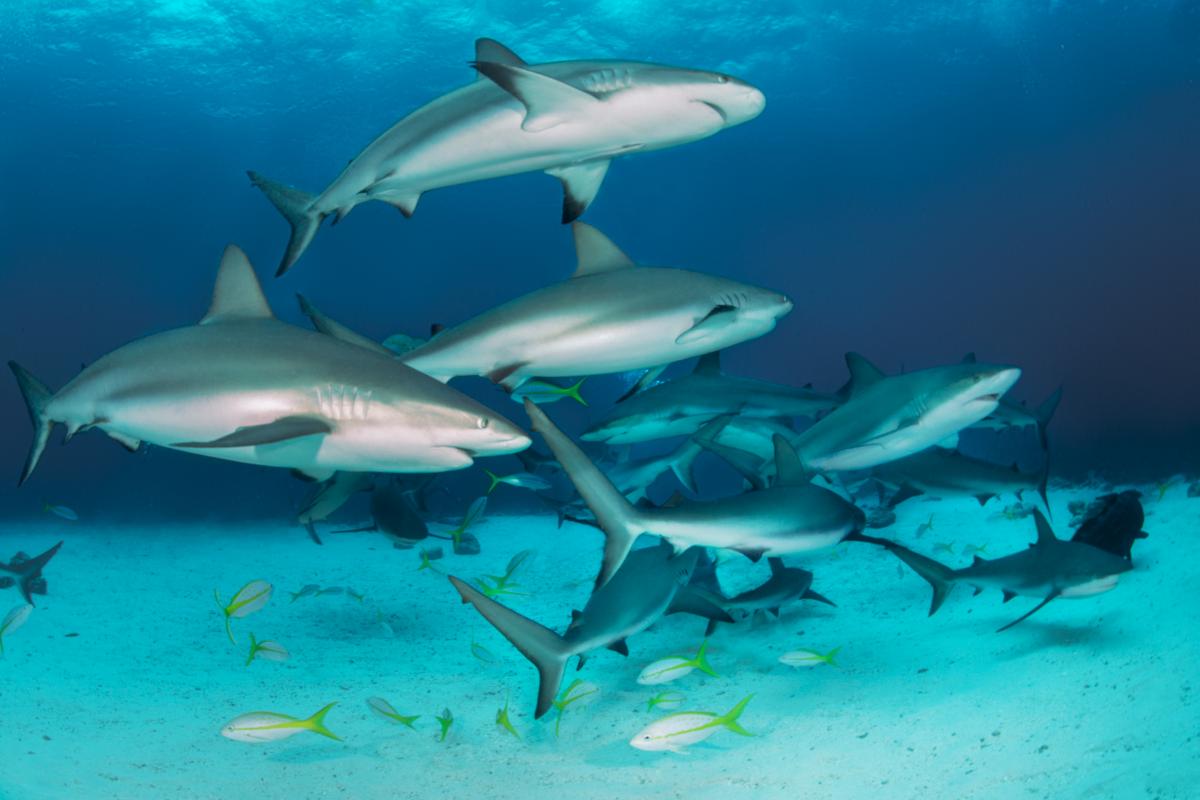August 14, 2020
Why Canada has a lot to celebrate this Shark Week
Estimated reading time: 0 minutes
It’s Shark Week and here in Canada we have lots to celebrate! Not only are there many sharks off Canada’s expansive coastline to celebrate with but just last year this country became a champion for protecting them from the global fin trade.
Sharks are often associated with warm tropical water, but they are also found in northern waters. There are 28 different species of sharks that can be found in Canada, 14 of which are commonly seen. These species range from small black dogfish to much larger basking sharks, and more sharks may be joining them. New research has found that sightings of great white sharks are increasing in Atlantic Canada.
There are over 400 species of sharks that can be found in every ocean around the world. As apex predators, they play a vital role in maintaining the health of marine ecosystems, so more sharks mean a happier, healthier ocean! But protecting these incredible fish is tough. They are generally slow growing, late to mature, long-lived and give birth to few young. As a result, populations are extremely vulnerable to overfishing.
One of the main threats they face is “finning” – a brutal and wasteful practice in which the fins of the shark are cut off and the rest of the animal is thrown back in the ocean to die. The fins from up to 73 million sharks end up in the global fin trade every year, devastating populations around the world. Canada used to import shark fins; that is until over 300,000 people from around the world took action and demanded the government ban the trade.
 The Canadian wave to end the fin trade
The Canadian wave to end the fin trade
Though the act of shark finning had been illegal in Canadian waters for years, up until last year, Canada was the largest importer of shark fins outside of Asia.
Even more shocking, research showed that the fins of several endangered and threatened sharks – including whale sharks, great hammerhead sharks and short fin mako sharks – were being sold in Canada. Fins from species living all across the world whose populations are at risk of disappearing forever were being imported into Canada. All of that changed though just over a year ago in June of 2019.
Oceana Canada and 300,000 of our supporters, along with other allies, helped ban the shark fin trade in Canada. It started with Bill S-238, a private member’s Bill from the Senate. Together, we championed it through the Senate and the House of Commons, before the ban on the shark fin trade was added to Canada’s newly amended Fisheries Act under Bill C-68.
Protecting the oceans is possible, when we work together. The thousands of people that contacted their Members of Parliament demanding action for sharks are proof of this.
 Continuing to save sharks
Continuing to save sharks
It’s been just over a year since the ban went into effect and shark fin imports have been reduced. We don’t have 2020 import data yet but the amount of imports was considerably less in 2019 than the four years prior – which is a good sign.
But our work isn’t done. Sharks are still at risk around the world. You can continue to help by raising awareness in support of fin bans in other countries, starting with our friends at Oceana in the U.S. – add your voice to their petition here.
Here in Canada, our report on fisheries has shown that endangered and threatened species including sharks are being killed as bycatch, when non-target species are caught in a fishery. Oceana Canada is continuing to call for increased monitoring of fisheries to reduce this bycatch that effects fish populations including sharks. You can also learn more about sharks, and the threats they face, by visiting our Marine Life Encyclopedia.
Banning the import and export of shark fin in Canada was a HUGE victory for sharks – one that we couldn’t have done without our supporters like you.

